Have you been using your electric heater all wrong? Experts reveal the 7 most common mistakes running up your energy bills
Here's what you should be doing instead

Lauren Bradbury
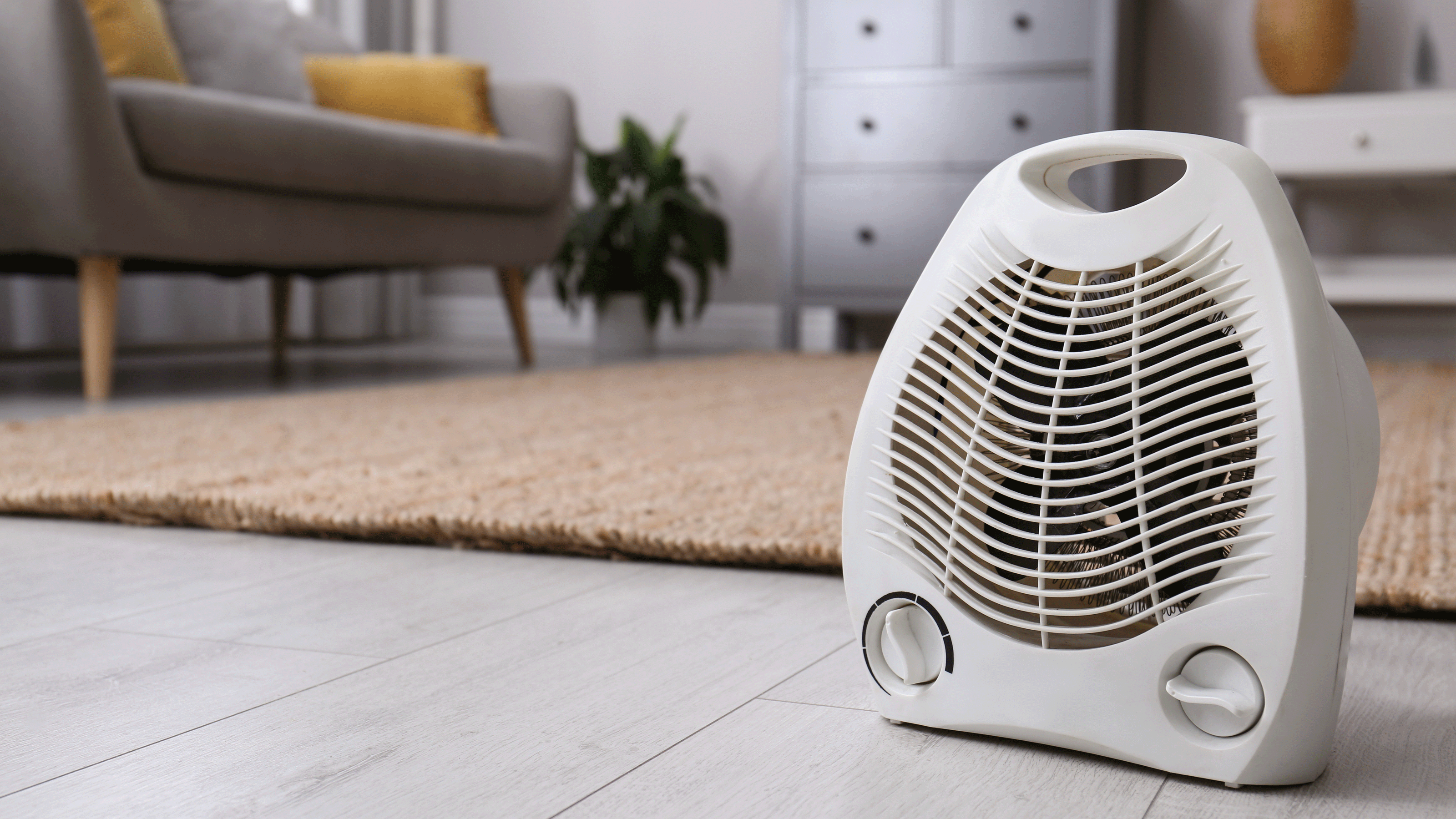
- 1. Using a heater that's the wrong size for the room
- 2. Positioning it in the wrong place
- 3. Using the heater to dry clothes
- 4. Using it in a poorly insulated room
- 5. Ignoring heater maintenance
- 6. Leaving it on overnight
- 7. Plugging it into an extension cord
- Shop our top-rated electric heaters
- FAQs
During the colder months, electric heaters are our go-to appliances to beat the winter chill. But while they’re ideal for keeping us warm in a pinch, there are some common mistakes many people often make when using an electric heater. In the long run, these can lead to safety issues, inefficient use, and higher energy bills.
While many of the best electric heaters are worth their weight in gold, it’s easy to make poor decisions when buying an electric heater and using it in the home. And if you want to get the most bang for your buck, it pays to be clued up on what you might be doing wrong - and the best ways to get the most out of your electric heater and keep it working its best when you need it most.
So, we asked experts to outline the 7 most common electric heater mistakes they often see people run into and advise on what you really need to do to keep your home warm without compromising on safety, cost to run, and efficiency.
1. Using a heater that's the wrong size for the room
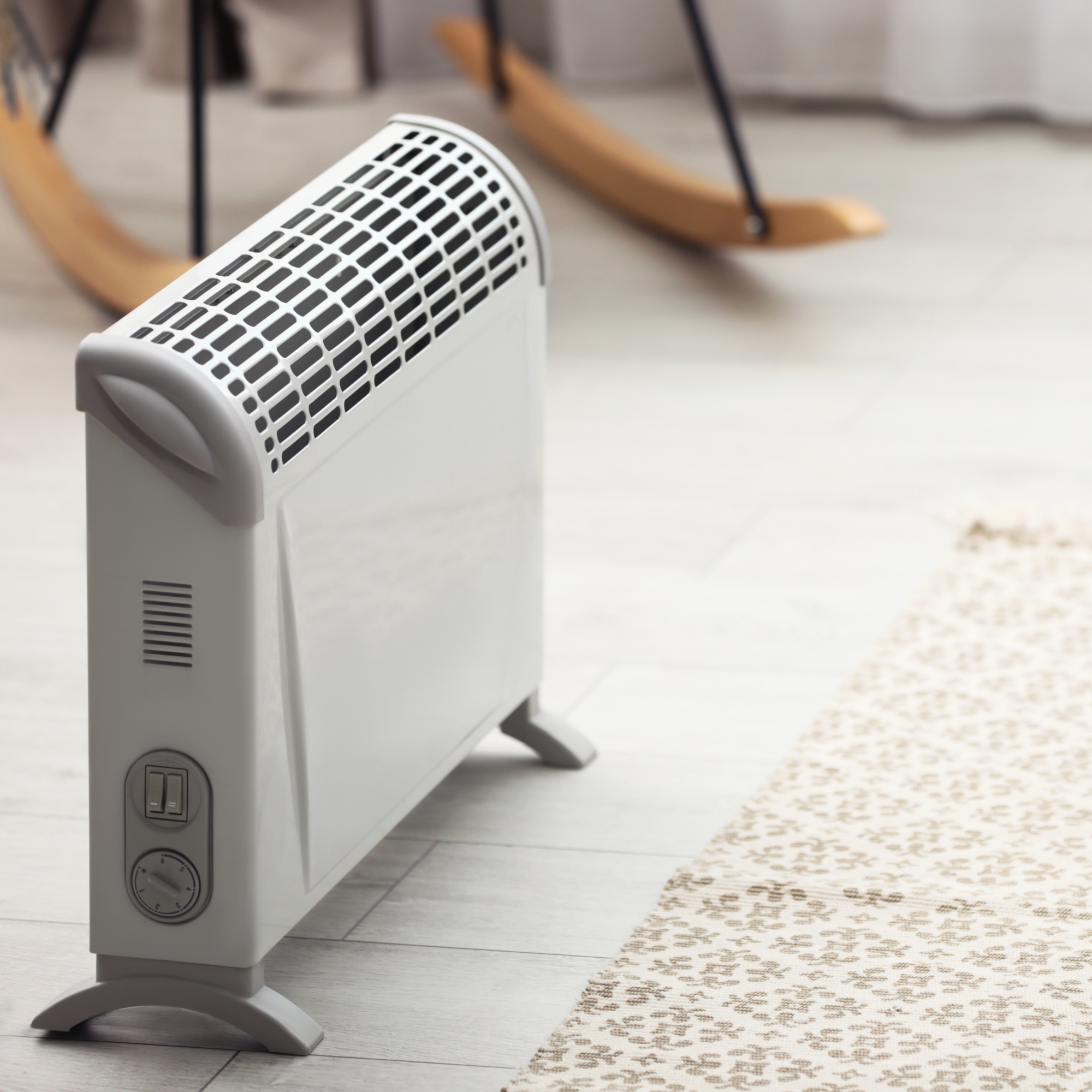
With so many different types of electric heaters on the market, it's no surprise that they're not a one size fits all. And one of the things everyone should know before buying an electric heater is that you need to consider the rooms you're planning to use it in, as this will be the deciding factor on how big it should be.
This is because Nicholas Auckland, Trade Radiators' heating and energy expert notes that using a heater that's the wrong size for the room can be extremely inefficient. 'A heater that's too big will create too much heat, while a heater that's too small won't create enough,' he explains.
'To avoid this, make sure to always match the heater's capacity to the size of the room. Most heaters will indicate the square footage, or amount of metres squared, they can effectively heat without over or under working.' By being aware of this, it can positively contribute to the reduced cost of running an electric heater.
Of course, if you want to buy multiple electric heaters to tackle the entirety of your property, you’ll also need to know how many electric heaters you need to heat a house so you don’t buy too many - or too few - of them.
Sign up to our newsletter for style inspiration, real homes, project and garden advice and shopping know-how
2. Positioning it in the wrong place
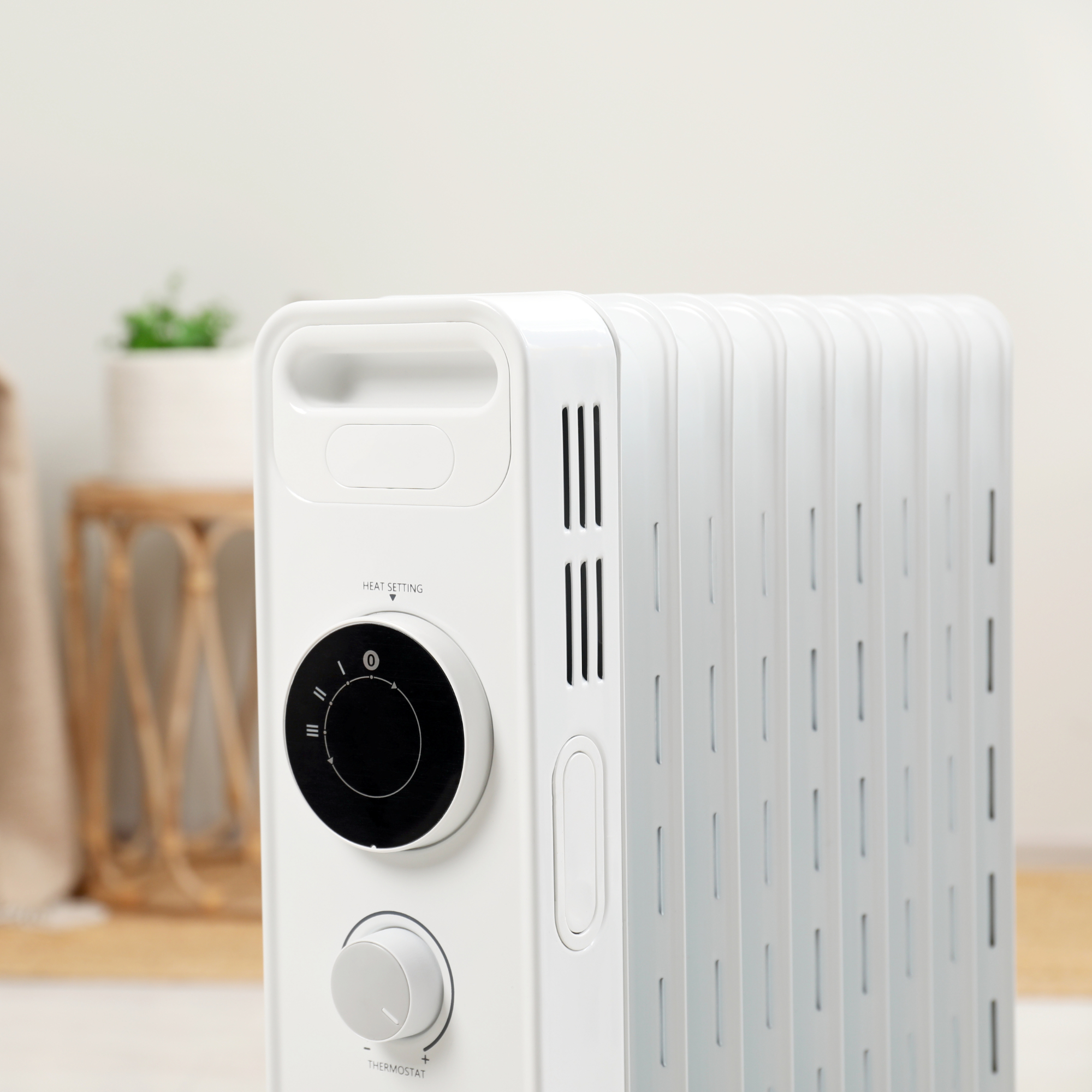
When using an electric heater, positioning is key. Although you can do a lot of research to find the cheapest electric heater to run, if you're placing your heater too close to walls, or furniture, you're ultimately reducing its efficiency and effectiveness. Not to mention, Nicholas cautions that blocking the heater's vents can also be a safety hazard.
'It could be worth rearranging the furniture in your rooms to make sure no big pieces, like sofas or beds are obstructing the heater from being allowed to spread heat throughout the space,' advises Les Roberts, energy bill comparison expert at Bionic.
But while you should generally avoid positioning an electric heater too close to the wall, the wall-mounted vs freestanding electric heater debate does throw a slight spanner in the works. And if you are short on floor space and want to keep your appliance out of the way, buying one designed to go on the wall may work in your favour. Just make sure it can safely be installed before doing this.
3. Using the heater to dry clothes
Similar to how it's not advisable to dry clothes directly on a radiator, you should also never attempt to dry clothes on an electric heater. 'This is dangerous, and covering an electric heater with clothes (wet or dry) can lead to fires,' warns Nicholas.
Instead, to dry clothes fast you should place them near the heater at a safe distance away to ensure the clothes aren't getting too hot, not touching the heater, nor posing a fire risk. As a rule of thumb, one metre away is the minimum.
Alternatively, we'd suggest investing in one of the best heated clothes airers as it combines an electric heater and traditional clothes airer into one nifty laundry day solution.
4. Using it in a poorly insulated room
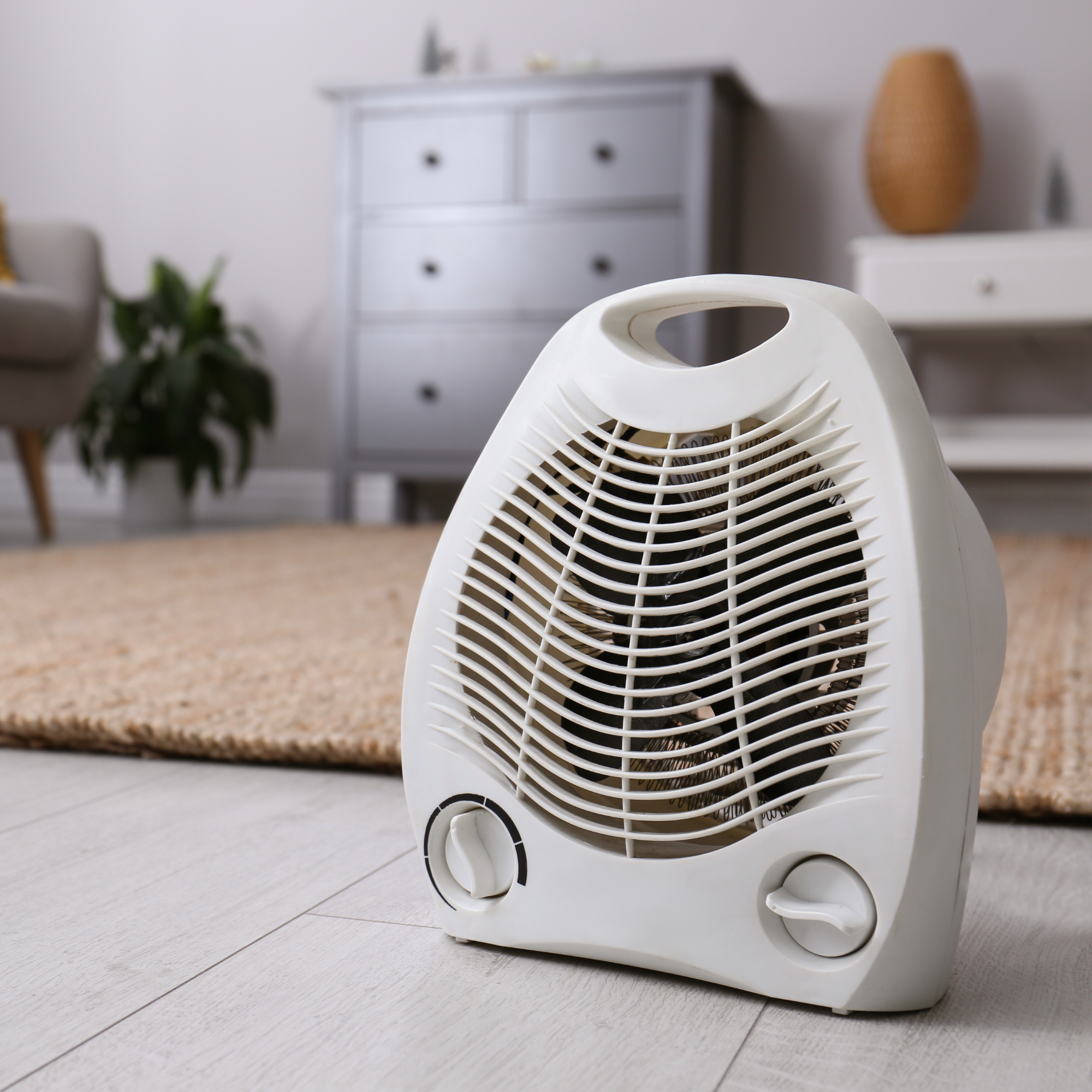
Although many of us are likely turning to the aid of an electric heater to tackle heating a room that is always cold, if we want maximum efficiency, we ought to take some liberties to increase insulation in our homes first and foremost.
As Jonny Smith, Home Safety Expert at Crusader Fire, explains, ‘Electric heating works best in well-insulted homes. Without proper insulation, it can be harder to maintain consistent warmth, which might lead to higher energy usage to keep the space comfortable.’
After all, the heat from your electric heater will simply leak out of a poorly insulated home if you’re not careful and don’t take precautions to improve your insulation levels. Just remember that there are some areas of the home that you should never insulate.
Les advises, ‘In the long term, the most cost-effective solution is to invest in high-quality insulation, including draught excluders and cavity wall insulation.'
On top of that, since a lot of a home's heat is lost through windows, it also pays to keep curtains closed to trap heat inside, especially when temperatures drop in the evenings.
If you can't get hold of the above solutions right now, Les advises laying blankets or pillows down in the cracks beneath doors as a short-term solution or investing in a low-cost temporary draft excluder that sits beneath your door to keep your house warm in winter.
5. Ignoring heater maintenance
As with any appliance, electric heaters also need care and maintenance and forgetting to keep on top of this can reduce its efficiency and overall lifespan. 'It can also let dust clog up the heater, which will create more of a burning smell when the heater is turned on,' adds Nicholas.
'Make sure to clean the heater's vents and filters regularly, and continually check for any signs of wear or damage to ensure your portable heater is always safe to use,' he continues.
If you suspect your electric heater has seen better days and is need of a replacement, here are our top-rated recommendations to get the job done and keep you warm at home.
6. Leaving it on overnight
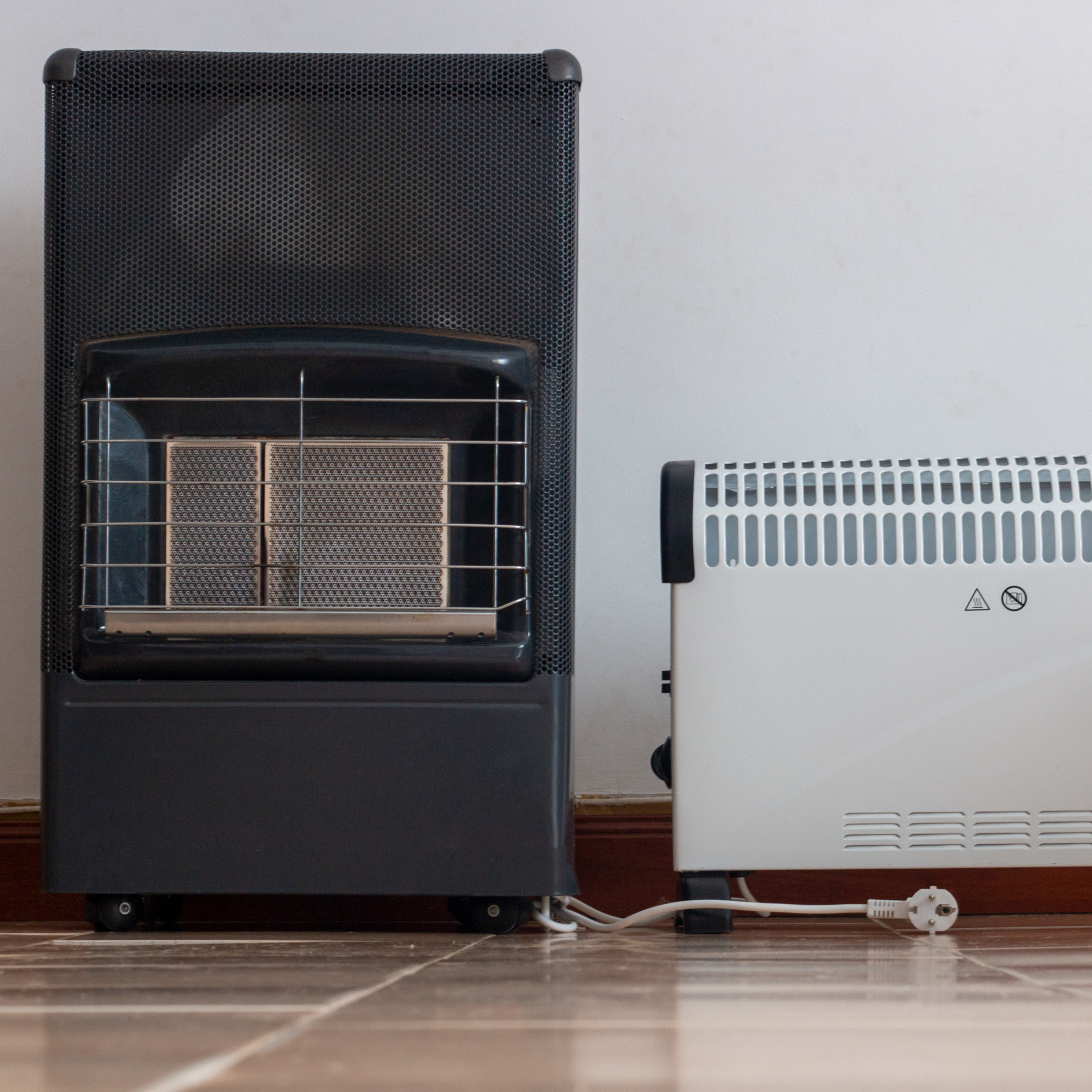
Another electric heater mistake many people make is leaving it on overnight. And while the answer to whether you can leave an electric heater on overnight is a complicated one, the general consensus is that you shouldn’t.
As Nicholas explains, ‘Generally, I would never recommend that you leave an electric heater on all night, unless it's an electric heater that's very specifically designed to be on overnight.’
This is because some electric heaters - specifically fan heaters - have a tendency to overheat when they are left on for too long. And this isn’t something you want happening in a bedroom when you have soft furnishings and flammable fabrics nearby.
In fact, that’s why most experts would advise people to choose electric blankets over electric heaters to keep them warm at night. It’s worth noting that some modern electric heaters do come with safety features to prevent any potential dangers, but that’s a risk we would suggest you don’t take.
7. Plugging it into an extension cord
There are many things you should never plug into an extension cord - electric heaters being one of them. Although most extension cords and leads are safe, they are easily overloaded. This then poses a serious health and safety risk and increases the chances of a fire.
Because of this, you should always plug an electric heater directly into the plug socket and only use it if you can guarantee its own power network. This may mean that you’ll have to unplug something else in the house, but it’s the safest way to use an electric heater without running the risk of overloading or short-circuiting.
Shop our top-rated electric heaters
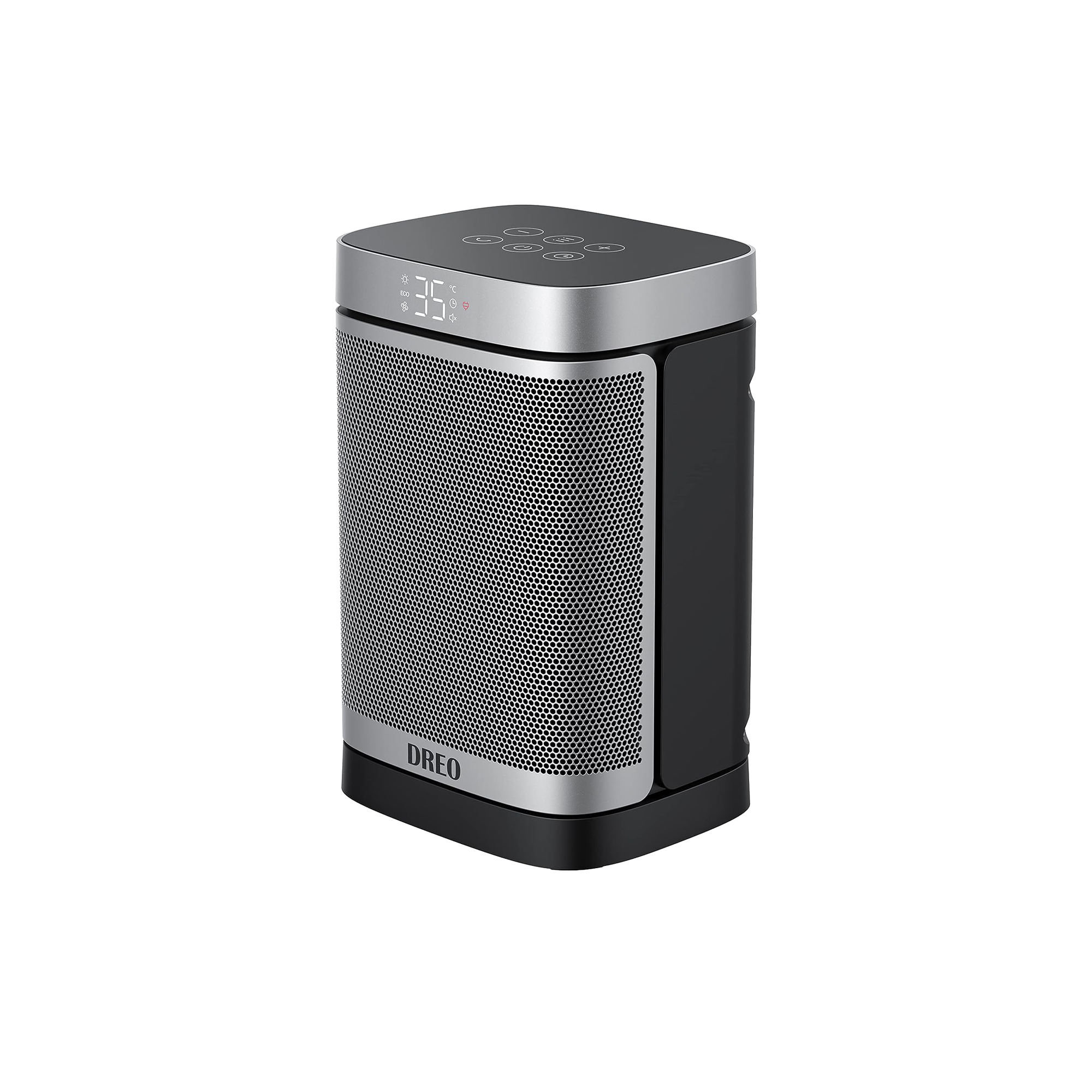
The Dreo fan heater is quick to heat a room, oscillates for good heat distribution, has three fan speed settings, and can maintain a temperature of between 5-35°C. It's also relatively affordable, compact, and easy to move around the home.
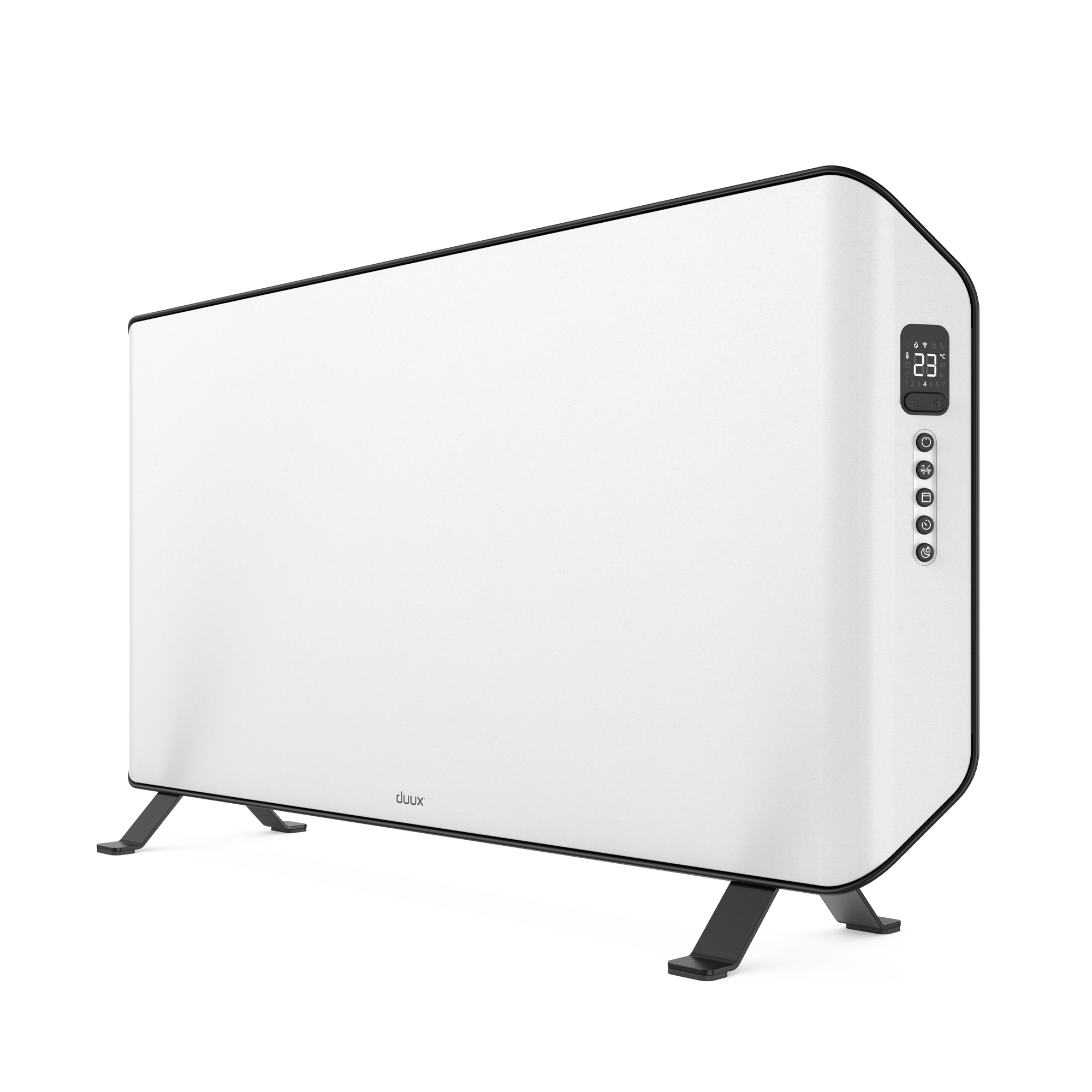
A convector heater is slower to emit warmth than a fan heater, but, its operation is silent, and its steady heat can be more economical if you have it running for long periods, or if you have a large room to heat. It's a cut above the usual electric convector, offering a stylish design and fantastic functionality.
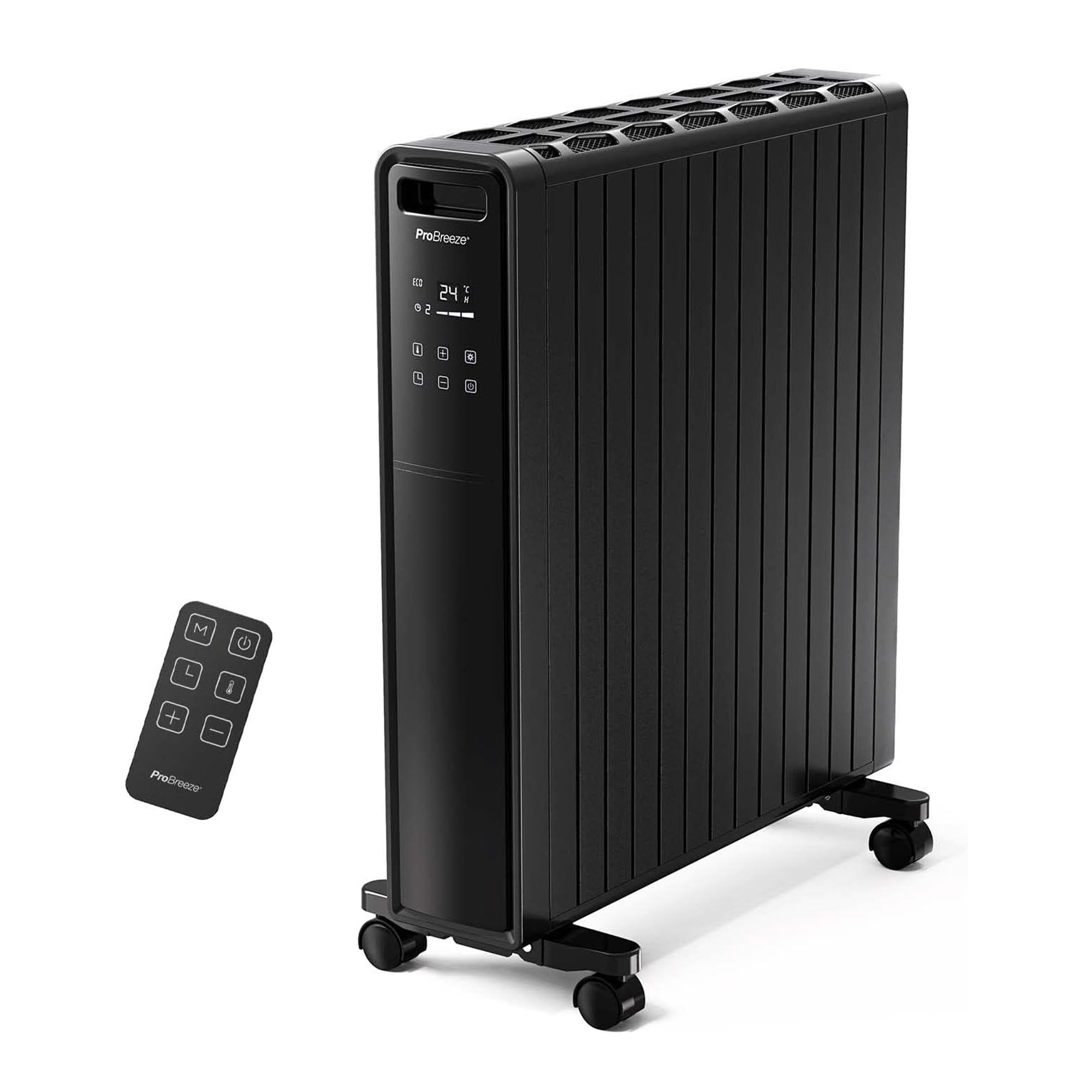
This powerful 2000W portable radiator is ideal for heating large spaces. It emulates a traditional oil-filled radiator but uses 'oil-free technology' that warms up quicker. It's big and heavy, but it has three powerful heat settings, a thermostat, timer, digital controls and remote control operation that make it super user-friendly.
FAQs
Should electric heaters be unplugged when not in use?
Yes, it’s generally advised to unplug electric heaters when they are not in use. This is a healthy habit to make, as you can ensure that you never accidentally leave it on for too long - something that could result in overheating or overloading the circuit. In turn, this could lead to a fire.
Unplugging electric heaters when not in use will also ensure that they don’t use any ‘phantom energy’ while in standby mode. This is something that can quickly increase your energy bills if you’re not careful.
How big of a room will 1500 watts heat?
The general rule of thumb when it comes to electric heaters is that 10 watts of power will heat one square foot. So, 1500 watts will typically heat a room of up to 150 square feet.
However, it’s important to take this sum with a pinch of salt, as there are many extraneous factors that can affect this heat output - such as the level of insulation in your house, the efficiency of the heater, and any other heat sources in the room.
By avoiding these common electric heater mistakes, you can enjoy a warm and cosy home that is safe whilst also keeping energy efficiency in mind.

Jullia was Ideal Home’s Junior Writer from 2022-2024 and the Ideal Home Certified Expert in Training on Vacuums having spent over 60 hours testing different models. She’s always loved all things homes and interiors, graduating with a bachelor’s degree in Architectural Studies from the University of Nottingham where her love for writing blossomed following her internship at ArchDaily. Now focused on home tech and cleaning, Jullia works on writing features and explainers to help people make the most of their home appliance investments, putting the newest launches through their paces. When she isn’t writing, she loves exploring the city, coffee shop hopping, and losing hours to a cosy game or book.
- Lauren BradburyContent Editor (House Manual)